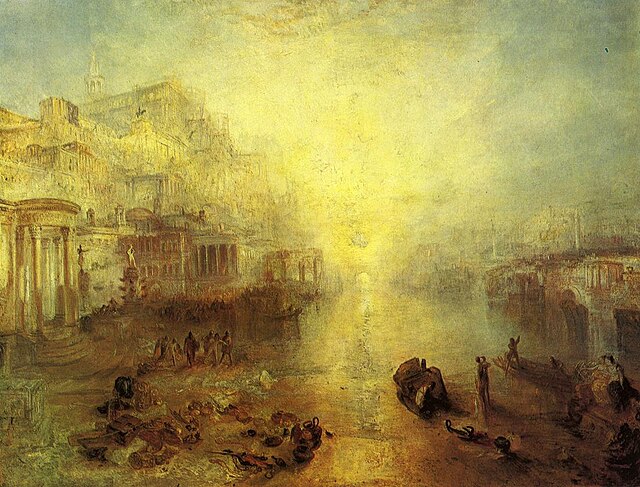The Metamorphoses is a Latin narrative poem from 8 CE by the Roman poet Ovid. It is considered his magnum opus. The poem chronicles the history of the world from its creation to the deification of Julius Caesar in a mythico-historical framework comprising over 250 myths, 15 books, and 11,995 lines.
Page from the edition of Ovid's Metamorphoses published by Lucantonio Giunti in Venice, 1497
Title page of 1556 edition published by Joannes Gryphius (decorative border added subsequently). Hayden White Rare Book Collection, University of California, Santa Cruz.
A woodcut from Virgil Solis, illustrating the apotheosis of Julius Caesar, the final event of the poem (XV.745–850)
A depiction of the story of Pygmalion, Pygmalion adoring his statue by Jean Raoux (1717)
Publius Ovidius Naso, known in English as Ovid, was a Roman poet who lived during the reign of Augustus. He was a younger contemporary of Virgil and Horace, with whom he is often ranked as one of the three canonical poets of Latin literature. The Imperial scholar Quintilian considered him the last of the Latin love elegists. Although Ovid enjoyed enormous popularity during his lifetime, the emperor Augustus exiled him to Tomis, the capital of the newly-organised province of Moesia, on the Black Sea, where he remained for the last nine or ten years of his life. Ovid himself attributed his banishment to a "poem and a mistake", but his reluctance to disclose specifics has resulted in much speculation among scholars.
Anonymous 18th-century engraving
Statue of Ovid by Ettore Ferrari in the Piazza XX Settembre, Sulmona, Italy
Ovid Banished from Rome (1838), by J.M.W. Turner
Medea in a fresco from Herculaneum








